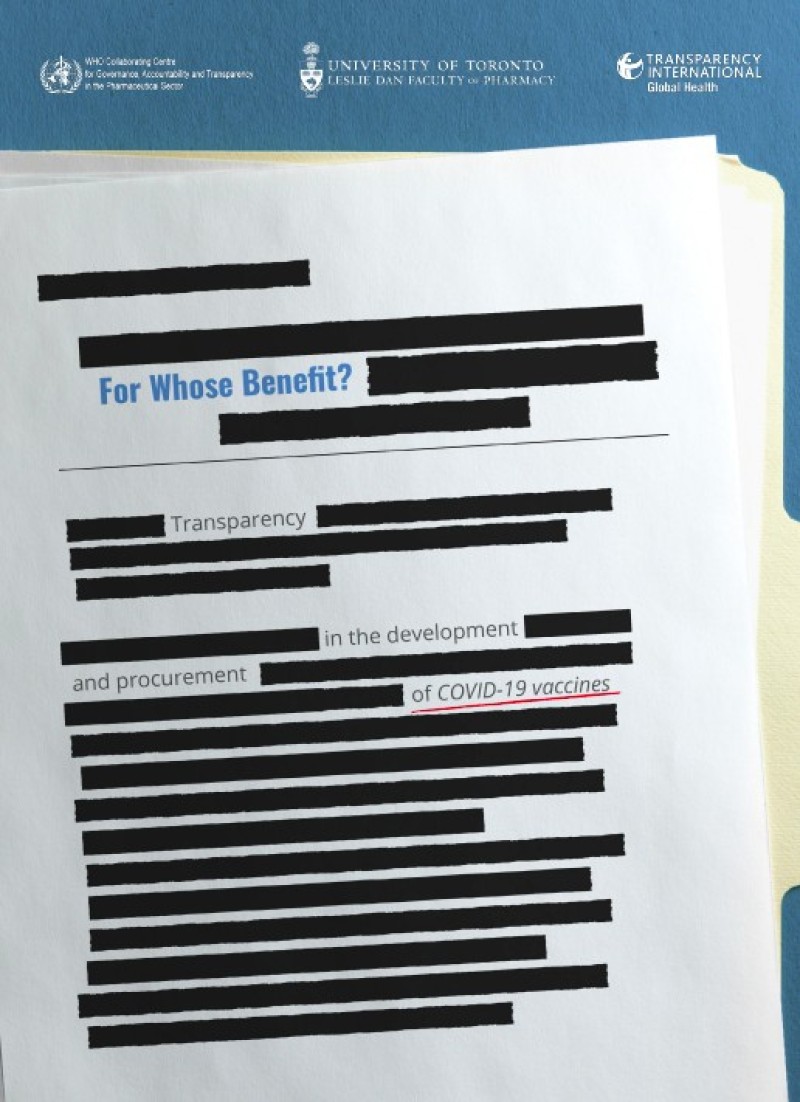Together with the University of Toronto, TI produced a new document titled “For Whose Benefit?” as an “in-depth study of the development and sale of the world’s top 20 COVID-19 vaccines, including those developed by AstraZeneca, Moderna and Pfizer/BioNTech.”
“Through detailed analysis of clinical trial data and nearly 200 contracts for vaccine sales up to March 2021, the report reveals a pattern of poor transparency and a disturbing trend of governments censoring key details of their orders from drug companies,” the global civil society association said in a statement.
The report claims that protocols had been published for just 12% of clinical trials, while there were “no publicly accessible protocols for 88% of the registered trials,” meaning that there is “no way of knowing the conditions under which they were carried out.”
TI stressed that “clinical trial transparency is the only way to monitor the safety and efficacy of vaccines and is a key safeguard against selective reporting of results or manipulation of data.”
However, the organization said that just 45% of all the registered clinical trials for the top vaccines have been announced.
Out of that number, it added, 41% had provided only top-level results via a press release or press conference, “with the full data not made available for media scrutiny or academic review.”
“These results make for worrying reading and carry important implications not just for the COVID-19 response, but also for future health emergencies,” according to the Head of Transparency International’s Global Health Programme, Jonathan Cushing.
He also said that due to the lack of transparency in many clinical trials, as well as the large financial incentives for developing effective medicines, selective reporting of results or outright data manipulation is possible.
“The lack of publicly accessible data creates space for misleading and potentially dangerous half-truths, disinformation, and conspiracy theories, which in turn contribute to vaccine hesitancy,” Cushing said.
He also noted that the lack of transparency over the contracts between governments and vaccine developers is equally disturbing.
“Given the huge amounts of public money invested in research and development around the world, citizens have the right to know everything about the vaccines their taxes helped to fund,” Cushing stressed.
The TI/University of Toronto study shows that of the handful of contracts that had been published, almost all include significant redactions of key information such as total price paid, price per dose and delivery schedules.
“Analysis of 183 contracts for 12 different COVID-19 vaccines reveals that only 7% of vaccine contracts between developers and governments were published through official channels,” most featuring “entire pages of redactions which obscure information of critical public interest,” the TI statement read.
It also mentioned large disparities in the price paid, saying that, for instance, “for the Oxford/Astra-Zeneca-developed vaccine, upper-middle income economies like South Africa are paying an average of 25% more per dose than high-income economies like the European Union.”
TI Global Health also called on national governments to “adopt and enforce legislation requiring the pre-registration of all clinical trials and the publication of summary results within 12 months of their completion.” The organization urged governments that have bought vaccines to “follow the lead of the United States and publish their contracts.”






